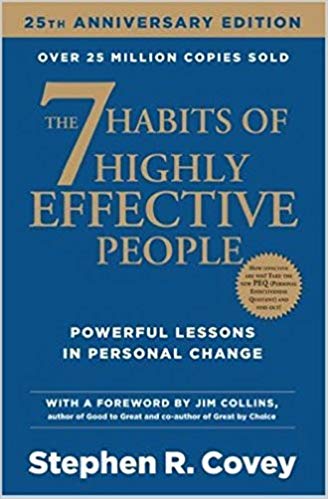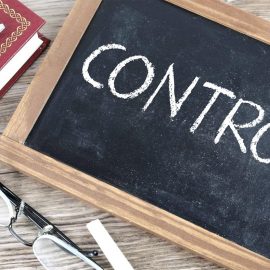

This article is an excerpt from the Shortform summary of "The 7 Habits of Highly Effective People" by Stephen Covey. Shortform has the world's best summaries of books you should be reading.
Like this article? Sign up for a free trial here .
In every situation, you have the choice of being proactive vs. reactive. If you’re reactive, you let your conditioning dictate how you respond to the people and circumstances around you; if you’re proactive, you decide how you’ll respond to create the results you want.
Being proactive vs. reactive takes time and practice. You can learn how to be more proactive by making good choices, taking control of your actions, and communicating effectively with the people around you.
Proactive vs. Reactive
Being proactive requires you to take responsibility for your actions and their consequences. You can’t blame anything on other people or the cards you were dealt because you recognize that you always have a choice of how you act and how you respond to something.
Reactive people allow their physical environment (e.g. the weather) and their social environment (e.g. how people treat them) to determine how they feel and act. This is the outside-in approach; they let things on the outside affect how they feel inside.
Proactive people experience these external forces too, but they take the inside-out approach, choosing how to respond to those outside conditions. This is the difference between being proactive vs. reactive. Proactive people exercise the ability to suppress a reactive emotional impulse in order to act in accordance with the values they’ve mindfully chosen, cultivated, and internalized.
Being proactive versus reactive means that you choose to act, rather than be acted upon; you create your circumstances, rather than being subject to them.
To act instead of react, you must take initiative. People who take initiative become the solutions to their problems — they don’t wait for solutions to present themselves. It takes initiative to maintain a P/PC Balance, and to cultivate effectiveness in your life through the 7 Habits. How to be proactive depends on several key factors.
How to be More Proactive
In order to learn how to be more proactive, you must first recognize your main values, which are what you choose to act upon. Frankl names three central values in life.
- Experiential: The circumstances and experiences we encounter
- Creative: The things we create or produce
- Attitudinal: How we respond to difficult experiences
The attitudinal is the highest value in life, in terms of creating your own paradigm and being proactive. Put another way, the most important factor is how you choose to respond to the experiences and circumstances you encounter in life.
When faced with a difficult reality, being proactive vs. reactive means accepting the hard facts but deciding how to create the most positive situation you can out of them. Here’s one proactive and reactive example.
If you have a boss who’s very smart but a total micromanager, being proactive versus reactive doesn’t mean living in denial and resigning by saying, “that’s just the way it is.” A proactive response entails working to buffer his weaknesses and focusing on his strengths; go above and beyond to provide him extra information and do tasks before he asks. When you show him you have the basics covered — the things that he usually hyper focuses on — then you can discuss bigger picture strategy with him and take advantage of his incredible intelligence. This is how to become proactive.
Being proactive and taking initiative are actually natural human actions, but if you develop the habit of being reactive you get accustomed to not using that muscle. If your life thus far has been determined by your conditions and conditioning, it’s because you made the choice (consciously or unconsciously) to allow that. But you always have the choice to take a different course.
It can be difficult to adopt a proactive approach, especially if you’ve spent years blaming your circumstances and conditioning. Additionally, it means you have to own up to the fact that you’ve chosen and allowed everything that’s happened in your life — including the negative. Being proactive vs. reactive is a challenge that requires careful though about all your actions.
One simple way to start shifting your paradigm to proactive versus reactive is to watch your words: The language we use both reveals and reinforces our attitudes of proactivity or reactivity. Reactive people tend to find evidence to confirm their belief that external forces are determining their life circumstances, and saying “that’s just the way I am” or “that’s just my luck” shows that you have resigned to your circumstances or conditioning. This creates a self-fulfilling prophecy because you’re not motivated or empowered to do anything about it. Think of proactive and reactive examples from your life based on this self-fulfilling prophecy idea.
Hollywood and popular culture tend to use language that reinforces reactive attitudes. For example, we’ve been taught that love is a feeling — you can fall in or out of love, and it’s beyond your control. It was love at first sight. You were struck with love. Or, suddenly, the love was gone and there was nothing you could do about it and no way to get it back.
Instead, you can be proactive about love and view love as a verb, something you can choose to exercise and cultivate. If your relationship feels like it’s lacking love, take the actions to support, encourage, accept, and love your partner. Develop and strengthen love like it’s a muscle.
Now that you’ve been some proactive and reactive examples, you should be able to identify places where you’ve been proactive vs. reactive in your life. Now, the next step is to strengthen your “muscle” and incorporate your lessons on how to be more proactive into your daily life. This is how to become proactive.
———End of Preview———

Like what you just read? Read the rest of the world's best summary of "The 7 Habits of Highly Effective People" at Shortform . Learn the book's critical concepts in 20 minutes or less .
Here's what you'll find in our full The 7 Habits of Highly Effective People summary :
- How to prioritize the hundred tasks you have to focus on the one or two that really matter
- The right way to resolve every disagreement and argument
- How to avoid burning out and succeed over 20+ years






